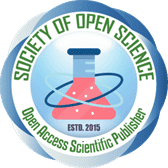Ethical Declarations
All authors submitting to Advances in BioScience (ISSN 2583-0058) must adhere to the following ethical declarations to ensure transparency, integrity, and trust in scholarly publishing. These mandatory requirements are based on the guidelines of the Committee on Publication Ethics (COPE), the International Committee of Medical Journal Editors (ICMJE), and other recognized frameworks.





